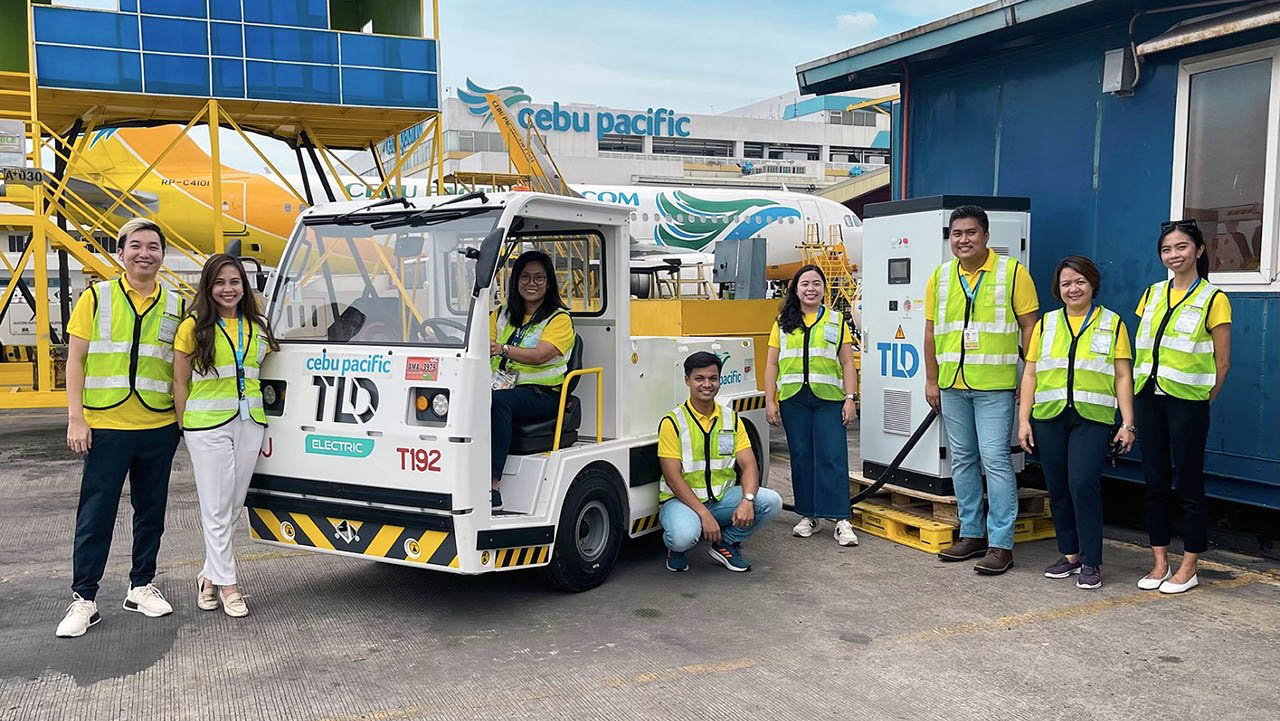As part of its ongoing electric vehicles (EV) transition program, Cebu Pacific, the Philippines’ leading airline, is conducting a trial run for an electric baggage tractor and charging station this quarter.
Baggage tractors are essential equipment for towing carts and dollies in airline ramp operations. CEB operates more than 100 units of these baggage tractors, which make up a significant portion of the airline’s fleet of ground support equipment (GSE).
The 100% electric, zero-emission tractor will be operated and tested for CEB’s ground operations at Terminals 3 and 4 of the Ninoy Aquino International Airport in Manila. The target is to bring in several units of electric baggage tractors for deployment at NAIA by early 2024.

“Our objectives for this demo run are multipronged. Since electric vehicles are a relatively new area for CEB, we want to test the technology and its operational viability and safety. We also intend to test the demo unit for various scenarios in our ground operations, so we are deploying it for both airport operations and cargo operations over the demo period,” said Javier Massot, CEB Chief Operations Officer.
The electric baggage tractor uses lithium-ion batteries, which have a significantly longer life compared to previous-generation lead acid batteries. The EV tractor as well as the fast-charging station demo units are provided by TLD Asia Limited, a subsidiary of Alvest, a group that designs, manufactures, and distributes technical products for the aviation industry.
Although emissions from our ground support equipment are only a small portion of our total Scope 1 emissions, our decarbonization strategy addresses the emissions from our entire value chain. This is necessary as we align with net-zero by 2050 emission-reduction goals — CEB Chief Strategy Officer Alex Reyes
The learnings from the demo runs will provide crucial inputs to CEB’s long-term strategy to transition its ground transportation network to electric, zero-emission alternatives. The EV program is an important component of CEB’s commitment to manage and reduce the environmental impact of its operations.
“CEB’s Scope 1 emissions come from our flights and ground operations. Although emissions from our GSEs, as part of our ground operations, are only a small portion of our total Scope 1 emissions, our decarbonization strategy addresses the emissions from our entire value chain. This is necessary as we align with net-zero by 2050 emission-reduction goals,” said Alex Reyes, CEB Chief Strategy Officer.
The airline also received an additional electric baggage tractor demo unit from another GSE original equipment manufacturer that was deployed at the beginning of the month.
Earlier this year, CEB rolled out its EV service for employees with the deployment of the 100% electric COMET vehicles from GET Philippines.
For its flight operations, CEB expects to receive 17 new Airbus NEOs this 2023.
For more information on Cebu Pacific, visit cebupacificair.com


